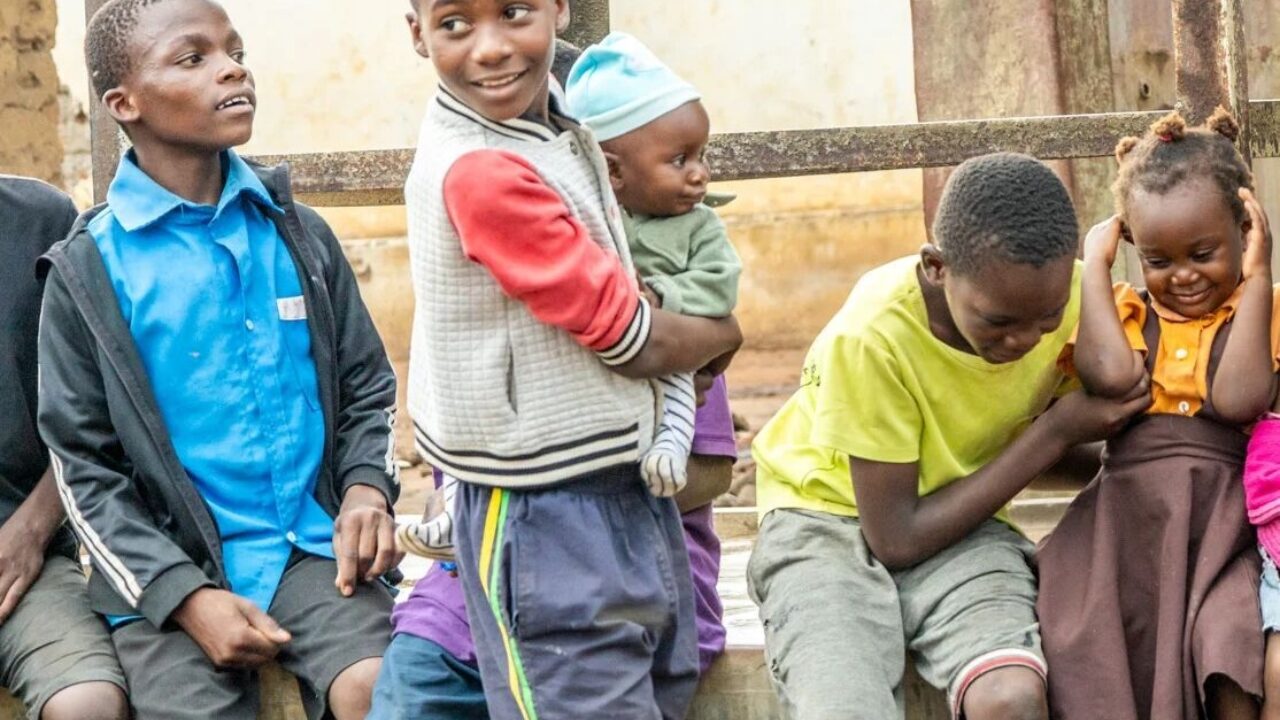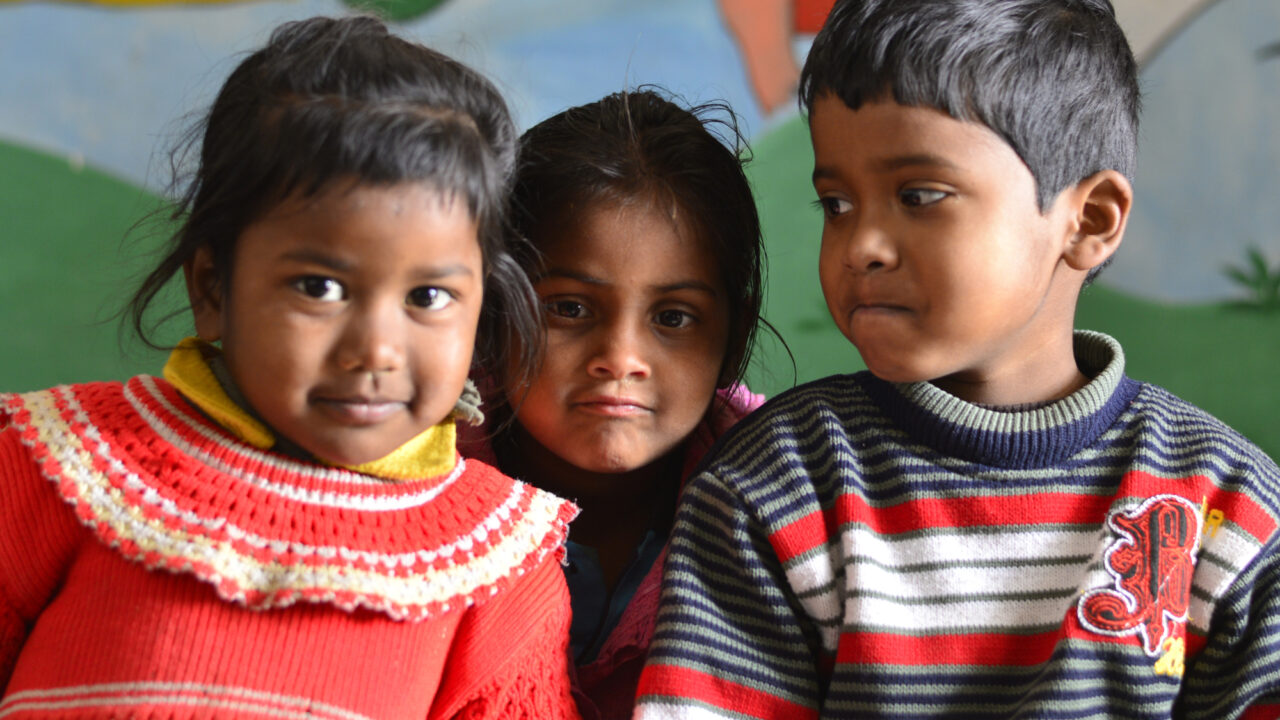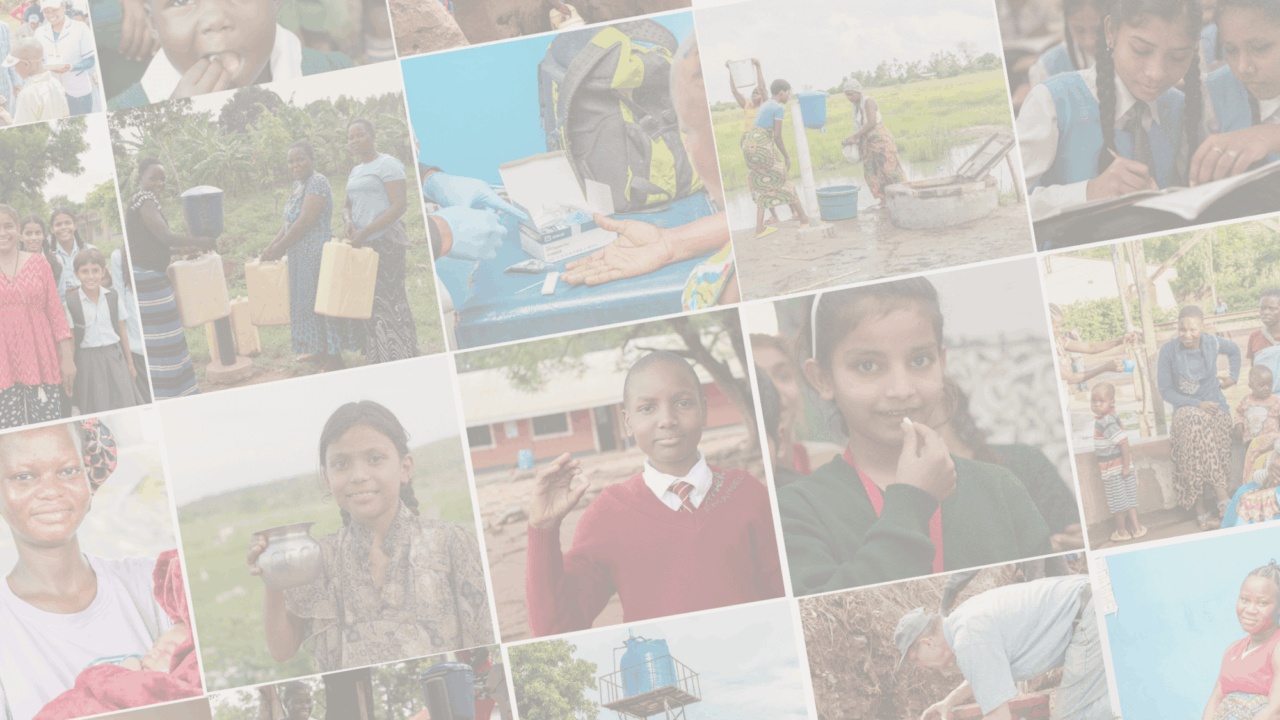In early 2021, the World Health Organization (WHO) released a new roadmap that sets global targets to prevent, control, eliminate, or eradicate 20 neglected tropical diseases (NTDs) by 2030, including schistosomiasis and soil-transmitted helminths (STH), which we help governments treat under our Deworm the World Initiative. To achieve these global targets, the WHO established three core pillars, one of which is to “change operating models and culture to facilitate country ownership”; in other words, to increase countries’ responsibility for these health outcomes, and reduce their financial and operational reliance on global and regional stakeholders.
The WHO has identified two key indicators of progress to measure increasing country ownership: 1) countries defining national NTD plans, and 2) countries including NTDs in their national health care budgets and contributing domestic funding to tackle these diseases.
These targets align with our long-standing approach at Deworm the World Initiative, wherein countries own and are responsible for implementing deworming programs from the start of our engagement. Across all the countries we work in, we focus on enhancing government capacity to operate large-scale, cost-effective, and technically sound school-based deworming programs, while embedding the program in relevant government departments, policies, budgets, and infrastructure. A clear example has been our experience working with the Government of Pakistan, where the federal and provincial governments have made significant steps towards country ownership of the program from the outset of our partnership.
The Context of Deworming in Pakistan
Pakistan is one of the top ten high burden countries for STH infections in the world. In 2016, Evidence Action supported Pakistan’s first nationwide STH prevalence survey, which indicated the need for annual deworming treatment for an estimated 17 million school-age children in 45 at-risk districts across Pakistan. Following months of advocacy using the newly available evidence on worm infection, in 2018, Evidence Action in partnership with Interactive Research and Development (IRD) Pakistan, launched technical support for school-based deworming to the Government of Pakistan, with the goal of supporting governments of seven territories and provinces – Islamabad Capital Territory, Khyber Pakhtunkhwa, Sindh, Punjab, Azad, Jammu & Kashmir, Balochistan, and Gilgit-Baltistan – to scale up treatment across 45 at-risk districts.[1]
Between 2019 – 2020, we supported the governments of Islamabad Capital Territory, Khyber Pakhtunkhwa, and Sindh to treat at-risk children, with the government reporting 3.2 million treatments delivered. Despite the current challenges posed by the COVID-19 pandemic, Pakistan remains committed to scaling up treatment for worm infections and is aiming to reach 17 million children across all at-risk districts.
Pioneering Success: Securing Domestic Financing in Pakistan
A key component to the successful establishment of the deworming program has been the operational and financial commitment of the Government of Pakistan. Due to our consistent and evidence-based advocacy efforts, in April 2019, the Federal Ministry of Planning, Development and Special Initiatives asked Evidence Action and IRD to develop a five-year budget for deworming across all 45 at-risk districts for consideration during their centralized five-year planning process, when they establish targets and goals for economic development initiatives.
On approval from the Chief Health in this ministry – a strong advocate for school-based deworming – the deworming program was incorporated into the Government of Pakistan’s five-year plan, the Economic Survey of Pakistan (2018-19 and 2019-20), and other key policy documents.
While that alone is a significant achievement, in order for domestic funding to be made available for the program, provincial governments must also approve annual development program budgets. The federal government, which is responsible for managing public sector development programs in Islamabad Capital Territory, did just that – allocating the equivalent of $44,000 (or approximately 13% of the total budget for implementing one deworming round) to support the school-based deworming round in 2019-20. Shortly after that, the Khyber Pakhtunkhwa government allocated approximately $37,500 for their next deworming round (approximately 2% of total budget for implementing one deworming round, given a much larger target population).[2]
However, it is not just financial contributions by the government that are truly encouraging. Following the approval of a domestic budget, the government also deputed existing government employees as project directors and focal points, who lead the planning and implementation of annual deworming rounds with technical assistance from IRD and Evidence Action. For example, the Project Director in Islamabad Capital Territory is responsible for implementation, planning, and management of the deworming program including the components related to the training and distribution cascade, public awareness and mobilization, drug management and coordination, and monitoring and reporting.
This structure has further helped to strengthen the ownership of the program by relevant government stakeholders. Qadeer Baig, IRD’s Project Director, commented “the ownership of the government is evident from the fact that all meetings at national and provincial level are led by senior functionaries and hosted by relevant departments with no costs to IRD or other partners. This is quite unusual in such programs.”
Key Lessons Learned From Pakistan’s Experience
While Pakistan is still early in its journey to scale up deworming, we continue to learn how best to support and facilitate increased government ownership of the program. At this juncture, we have two key takeaways that have proven critical to mobilize domestic financing for deworming:
Highlighting the cost-effectiveness of deworming provided an attractive investment opportunity for all relevant ministrie
It is quite difficult for a resource-constrained country like Pakistan to commit human and financial resources to a new program, given the number of pressing priorities to address. From the outset of our engagement to advocate for government-led scale-up of school-based deworming, we emphasized the cost-effectiveness of the intervention alongside the rigorous evidence of its impact on health, education, and long-term economic gains. Using the school platform to deliver deworming can reach large proportions of at-risk children at an average cost of 75 PKR (US$0.50) per child per treatment. With such a low cost relative to the benefits, deworming resonated with the ministries now responsible for financing and implementing the program, including Health, Education, and Planning & Development, accelerating the funding allocation.
Obtaining early buy-in from key government stakeholders and establishing an appropriate governance structure was key to securing domestic funding.
A key area of focus early in our engagement with the government was to help establish a context-appropriate governance structure that would enable the program to function smoothly, with all relevant ministries and departments playing a role.
We strategically advocated with and involved the Federal Ministry of Planning, Development and Special Initiatives from the beginning, as this ministry is responsible for introducing new evidence-based initiatives, approving domestic funds for development programs, and recommending other provinces to prioritize specific programs.
Once this ministry’s buy-in was secured, they led the process of establishing and chairing the National Steering & Coordination Committee for the deworming program at the federal level, with representation from the Ministry of Federal Education & Professional Training, Ministry of National Health Services, Regulations and Coordination, and the provincial Planning & Development departments. With all relevant federal and provincial level stakeholders represented in this decision making body, we were able to facilitate increased ownership and improved decision making for the program, as well as secure domestic funding for the program.
Way Forward
The steps taken by the Government of Pakistan are a clear indication of their commitment to combating intestinal worm infections among children. The early successes have set the stage for other provinces and regions in the country, who are now working on developing domestic budgets for the school-based deworming in their own respective province or territory. According to Dr. Murtaza Haider, Assistant Chief Health at Federal Ministry of Planning, Development & Special Initiatives, “The passion and commitment to improve the health of children of Pakistan has allowed the government to assign resources for deworming… in Islamabad Capital Territory and Khyber Pakhtunkhwa. Other provincial governments will also follow suit.”
Evidence Action and IRD are continuing to support the provincial governments to create and update domestic budgets to increase domestic resources to the deworming program, while facilitating government-led scale-up of the program to reach 17 million at-risk children across all seven provinces and territories in Pakistan.
The deworming program is partly funded by Dubai Cares, part of Mohammed bin Rashid Al Maktoum Global Initiatives, and donors following the recommendations of Givewell.
Notes:
[1] At the time of the survey, the number of districts was 40. However, since then, administrative changes have taken place which has increased the number of districts that are considered high-risk to 45.
[2] The total budget for implementing a deworming round consists of costs associated with policy and advocacy, community mobilization, drug management, training cascade, monitoring and evaluation, and program management borne by technical assistance partners (IRD and Evidence Action) as well as the government. The actual costs incurred may differ from the budget, and these are analyzed by Evidence Action after a deworming round to calculate the cost of treatment per child. The figures presented here exclude the value of donated drugs and the cost of prevalence surveys conducted periodically to measure worm infection levels. See this blog post for more details on how cost-per-child is calculated. In addition, as the exchange rates have fluctuated between Pakistan rupees and US Dollar significantly, an average exchange rate during the two year period (2019-2021) equal to 1 USD = 159 PKR has been applied for simplicity.



